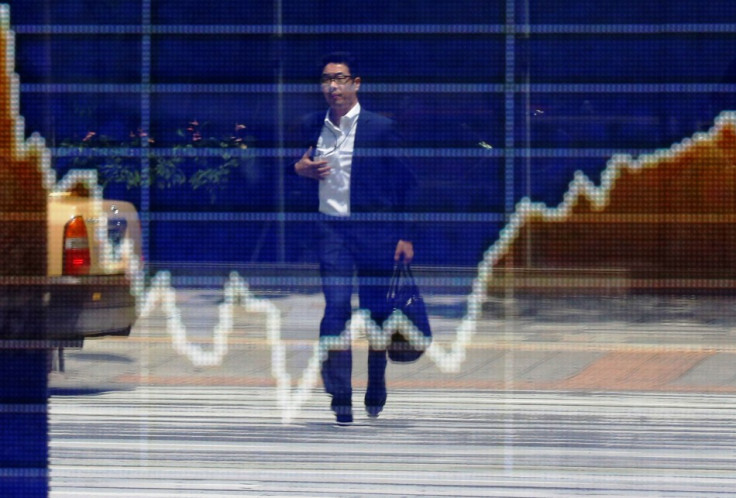Asian Markets Weekly Review: Hang Seng Outshines Regional Indices

Stock markets across Asia finished the week higher. The Hang Seng led the pack while the Shanghai Composite trailed.
A rally in Chinese equities boosted most Asian markets at the beginning of the week. Sentiment in China was boosted by last week's positive economic data, which suggested that the world's second largest economy was stabilising.
In Japan, government data showed the country's gross domestic product grew at an annualised rate of 2.6% in the April-June quarter. However, this was lower than the 3.6% forecast. Growth in the first three months of 2013 was revised down to 3.8% on an annualised basis, compared with the earlier estimate of 4.1%.
"With uncertainty over [US] Federal Reserve stimulus measures lurking in the background, markets are struggling to find direction," said Rivkin Securities global analyst Tim Radford.
A rally in Japanese equities boosted markets on 13 August, which led to some session highs that day. Japanese stocks rose as the yen weakened, following a Nikkei newspaper report that the government is considering a reduction in corporate tax rates.
Japanese stocks were also boosted by better-than-expected machinery orders data. June machinery orders fell 2.7% from May, but that was still better than forecasts for a 7.2% decline.
"Investors are digesting the deluge of July activity data late last week, the main highlight of which was acceleration in exports, industrial production and M2 [money supply growth]. These are hopeful signs of economic recovery in the second half of the year," said ING Financial Markets economist Prakash Sakpal.
In China, the government said it would reduce service charges for over a dozen federal departments and agencies, effective 1 October, as it attempts to slash the bureaucracy to improve the business environment in the world's second-largest economy.
In company news, Jaguar-Land Rover (JLR) decided to recall thousands of vehicles in China to deal with possible engine and oil leakage problems.
Elsewhere, Japan's Mizuho Financial Group continued its negotiations to acquire Australia and New Zealand Banking Group's minority stake in Bank Pan Indonesia. Industry sources valued the deal at around $570m (£368m, €428).
In India, the stock price of the country's largest property developer DLF surged about 8% after the company reported higher-than-expected earnings for the April-June first quarter.
Markets were mixed in choppy trade on 14 August after upbeat US economic data reinforced fears of an early reduction in the US Federal Reserve's monetary stimulus.
Data from the US showed that retail sales, excluding cars, gasoline and building materials, rose 0.5% in July, the fastest pace in seven months. The news sparked fears among market participants that the Fed could begin trimming its massive monthly bond buys as early as September.
The previous day, Atlanta Fed President Dennis Lockhart said that economic data at hand did not provide "a clear picture" for the central bank to zero in on a timeline for its planned tapering of stimulus.
Trading across Asia was subdued on 15 August while Japanese equities dropped as market participants tried to predict the timing of the US central bank's planned cutback of monetary stimulus measures.
The previous day, St Louis Fed President James Bullard said the central bank needed to examine more data in the second half of 2013, before it could begin pruning its asset buys.
"Asian equities are mostly weaker in the absence of event risk drivers, as investors weigh the possibility of September tapering. As a result there is consolidation in most Asian bourses apart from Japan's Nikkei," said Stan Shamu, market strategist at IG.
Rumours of a potential cash reserve ratio cut for China's banks boosted mainland Chinese equities on the final trading day, which struck a two-month high and retreated. The rally in Shanghai helped regional markets pare losses.
Asian markets had opened lower on Friday morning after Wall Street indices tumbled overnight on fears of Federal Reserve QE tapering.
In company news, the stock price of India's leading mobile carrier Bharti Airtel dropped over 3%, a day after Singapore Telecommunications announced it would increase its equity stake in Bharti Telecom, a promoter company of Bharti Airtel.
Market Movements
The Hang Seng ended 3.29% higher at 22,517.81.
South Korea's Kospi finished 1.89% higher at 1,920.11.
The Japanese Nikkei index ended 1.31% higher at 13,650.11.
Australia's S&P/ASX 200 finished 0.89% higher at 5,113.90.
The Shanghai Composite index finished 0.40% higher at 2,068.45.
The Week Ahead
The week ahead will see China release house price index data for the month of July. The government will also put out foreign direct investment (FDI) figures for the month of July.
HSBC will release preliminary Chinese manufacturing PMI data for the month of August.
Japan will put out trade balance data for the month of July alongside industrial activity data for the month of June.
India will put out bank loan growth data. The benchmark S&P BSE Index finished 3.97% lower in Mumbai on Friday, pulled down by a weak rupee which dropped to a historic low against the US dollar in late afternoon trade. The Indian rupee, which has been in freefall since April, fell to 62.03 to the US dollar on Friday.
The Reserve Bank of Australia will release the minutes of its August meeting. On 6 August the RBA cut its cash rate to a record low 2.5%, the lowest since 1959.
The Melbourne Institute will put out Westpac Leading Index data for June during the week.
New Zealand will release quarterly producer price data.
© Copyright IBTimes 2024. All rights reserved.






